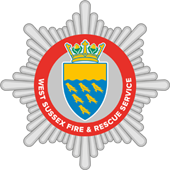Fire safety on the farm
Farm fires can be devastating, causing a loss of expensive machinery, buildings, livestock and crops.
Safe harvest and storage
- Ensure all vehicles and machinery are well maintained and serviced regularly.
- Remove hay and straw from fields as soon as possible after harvesting.
- Hay should be dry before storing to prevent spontaneous combustion - many fires are caused by storing damp or wet hay.
- Store hay and straw away from other buildings - especially those containing fuels, chemicals, or livestock - to prevent fire spreading.
- Keep stacks of hay and straw at least 10 metres apart and ensure there is sufficient space between the top of the stack and electrical roof lighting.
Install firebreaks
- Firebreaks between crops can be used to stop or slow the progress of a fire.
- Ideally, a firebreak should be three times the width of the highest crop or vegetation nearby. For example, the recommended firebreak for a 4-foot wheat crop would be a minimum of 12 feet wide.
- Keep a secure water supply, such as a vacuum tank, nearby.
- Revisit your site fire plan before each seasonal crop rotation and maintain the firebreaks regularly.
Overhead power lines
West Sussex Power Network is primarily provided by SSEN. They provide a range of services such as shrouding and goalposts to enable you to work safely near power lines.
- Ensure all workers know the maximum reach and height of the vehicle they are operating and where the power lines are.
- If contact is made with a power line, stay in the cab and try to drive clear.
- In an emergency, phone 105. If in doubt, or if there’s a fire, phone 999.
Prepare for an emergency
- Make sure everyone on the farm knows what to do in the event of a fire and have a plan for evacuating livestock.
- Find out where your nearest fire hydrant is and ensure it is accessible.
- Maintain and service your firefighting equipment regularly. Make sure everyone knows where it is and how to use it.
- Keep all access routes on your land clear for emergency vehicles and ensure your farm is clearly signposted.
- Using What3Words can help the fire service locate an incident on your farm in an emergency.
- Know what’s on your land and make crews aware of any hazards when they arrive.
Working with you
Our Rural Engagement Officer works to support residents living in rural areas, targeting those most at risk and helping to keep their homes and businesses safe from fire.
To contact our Rural Engagement Officer directly, please email benjamin.applin@westsussex.gov.uk.
Animal rescues
We have specialised teams within our service who are available 24/7 to assist with animal rescues.
If you have an animal in distress - call the fire service. Don’t put yourself at risk by attempting to rescue an animal.
You can find further guidance on preventing a fire in your home and keeping your business safe from fire.


